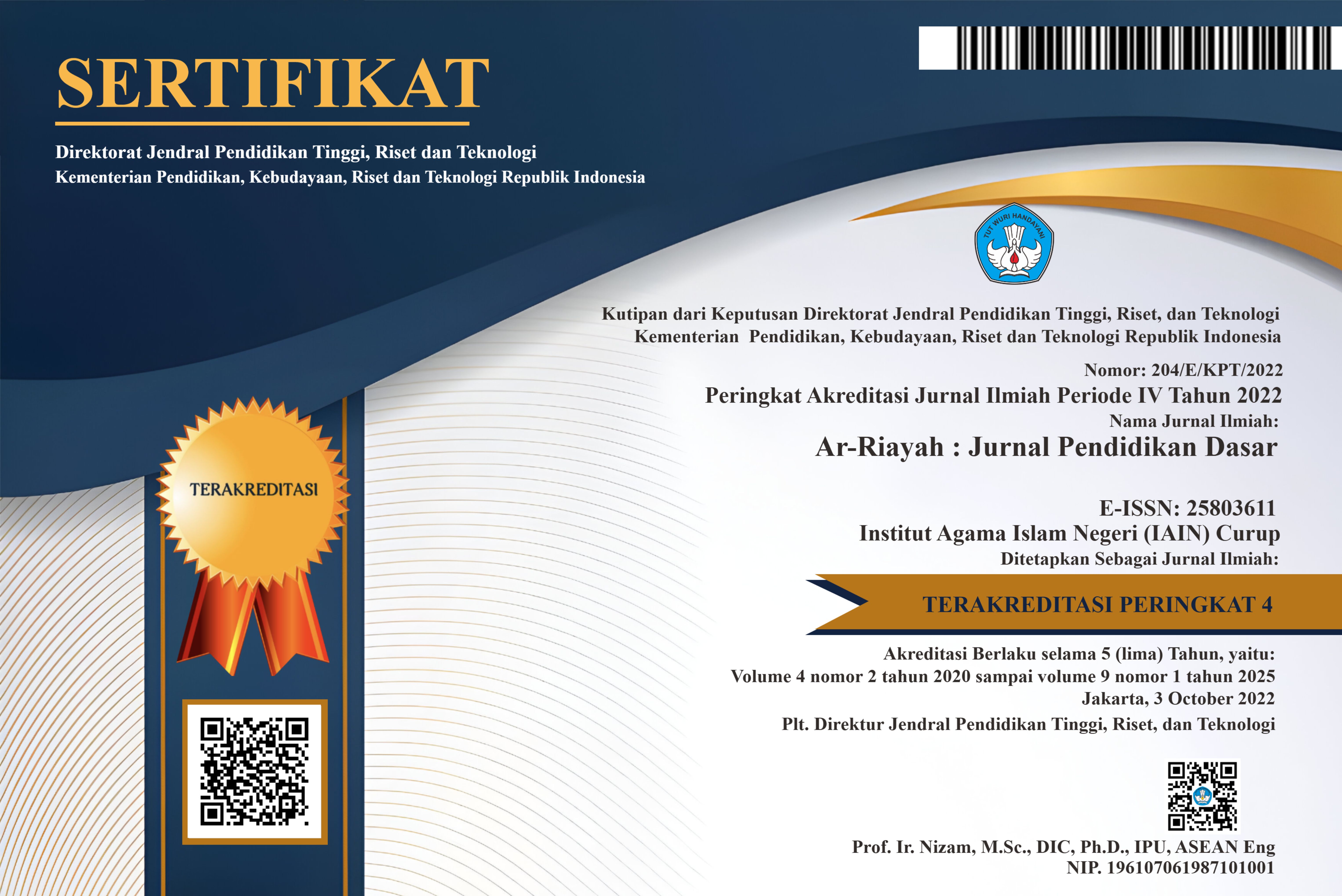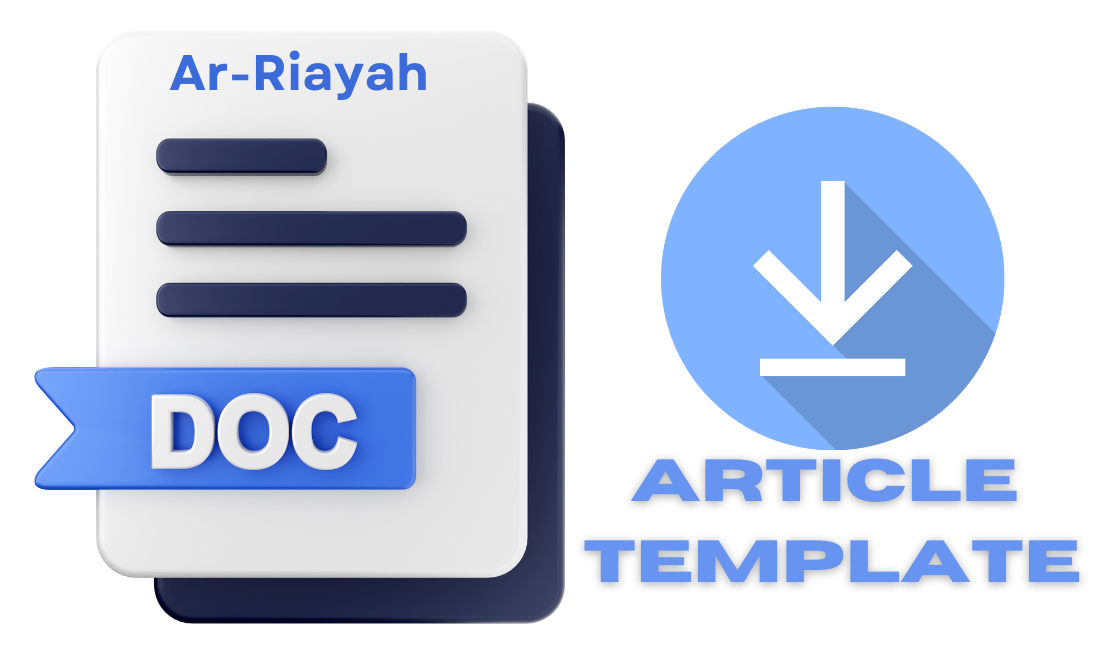Pembelajaran Bahasa Indonesia dan Sastra (BASASTRA) di SD dan MI
DOI:
https://doi.org/10.29240/jpd.v2i1.261Keywords:
Indonesian language, literature, elementary schoolAbstract
Downloads
References
Ali Muhammad, Ilmu dan Aplikasi Pendidikan I. (Bandung: Angkasa 2009: 33).
Atmazaki. 2013. Mengungkap Masa Depan: Inovasi Pembelajaran Bahasa Indonesia dalam Konteks Pengembangan Karakter Cerdas. Makalah. Padang: UNP.
Fasli Jalil, Dedi Supriadi, Reformasi Pendidikan Dalam Konteks Otonomi Daerah, (Yogyakarta Adicita Karya Nusa, 2000).
Kartadinata Sunaryo. Panduan Pengajar Buku Inovasi Pendidikan, (Jakarta,. Depdikbud. 2000).
Keraf. Komposisi : Sebuah Pengantar Kemahiran Bahasa.(Jakata: Flores: Nusa Indah. 1997)
Mahsun. 2014. Teks Pembelajaran Bahasa Indonesia Kurikulum 2013. Jakarta: Raja Grafindo Persada.
Mulyasa E. Pengembangan dan Implementasi Kurikulum 2013. ( Bandung: PT. Remaja Rosdakarya, 2013 ).
Nasution, S., 1999, Kurikulum dan Pengajaran, Jakarta: Bumi Aksara, cet-ke-3
Sardiman A.M,. Interaksi & Motivasi Belajar Mengajar. (Jakarta: Rajawali Pers. 2000 ).
Slamet. Dasar-dasar Pembelajaran Bahasa dan Sastra Indonesia di Sekolah Dasar (Jakarat: Lembaga Pengembangan Pendidikan (LPP) UNS dan UPT Penerbitan dan Percetakan UNS (UNS Pres.: 2007 ).
Sukardjo dan Ukim Komarudin, Landasan Pendidikan, (Depok: PT Raja Grafindo Persada, 2012).
Undang-Undang RI Nomor 20 Tahun 2003 Tentang SISDIKNAS, (Bandung: Citra Umbara, 2014).
Downloads
Published
How to Cite
Issue
Section
Citation Check
License
Authors who publish with Ar-Riayah: Jurnal Pendidikan Dasar agree to the following terms:
Authors retain copyright and grant the journal right of first publication with the work simultaneously licensed under a Creative Commons Attribution-NonCommercial-ShareAlike 4.0 International License (CC BY-NC-SA 4.0) that allows others to share the work with an acknowledgment of the work's authorship and initial publication in this journal.
Authors are able to enter into separate, additional contractual arrangements for the non-exclusive distribution of the journal's published version of the work (e.g., post it to an institutional repository or publish it in a book), with an acknowledgment of its initial publication in this journal.
- Authors are permitted and encouraged to post their work online (e.g., in institutional repositories or on their website) prior to and during the submission process, as it can lead to productive exchanges, as well as earlier and greater citation of published work (See The Effect of Open Access).











